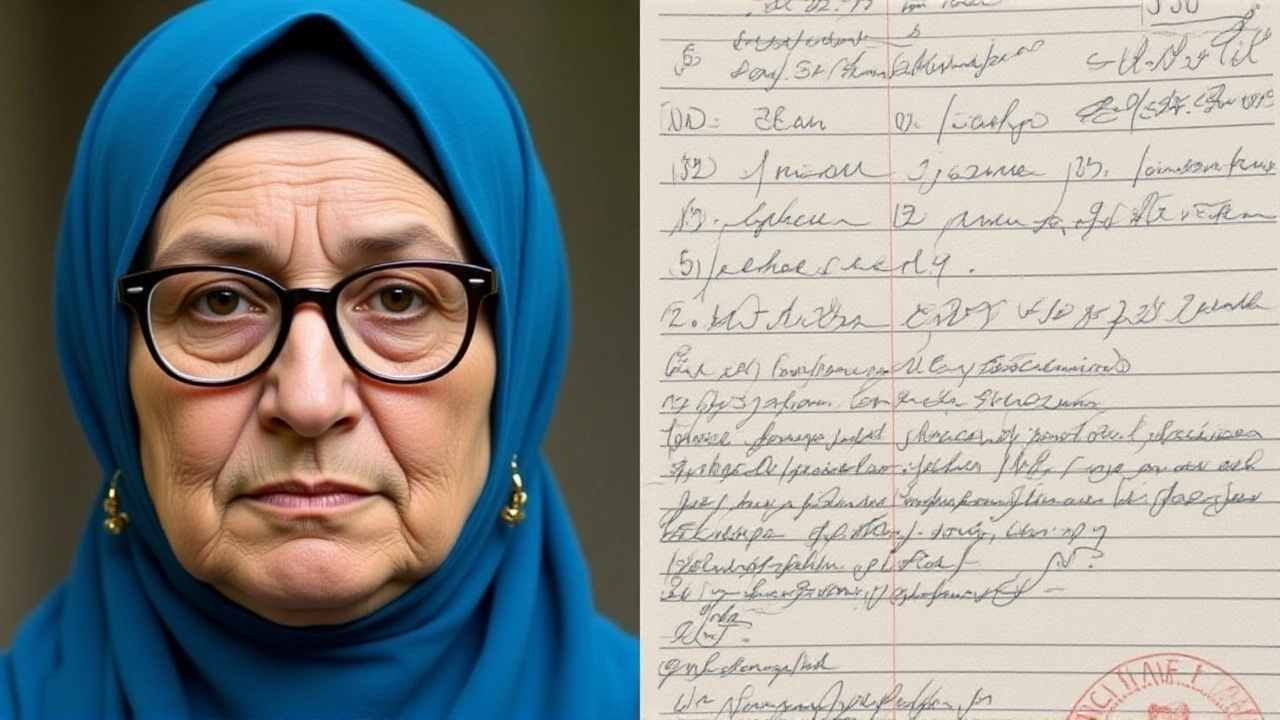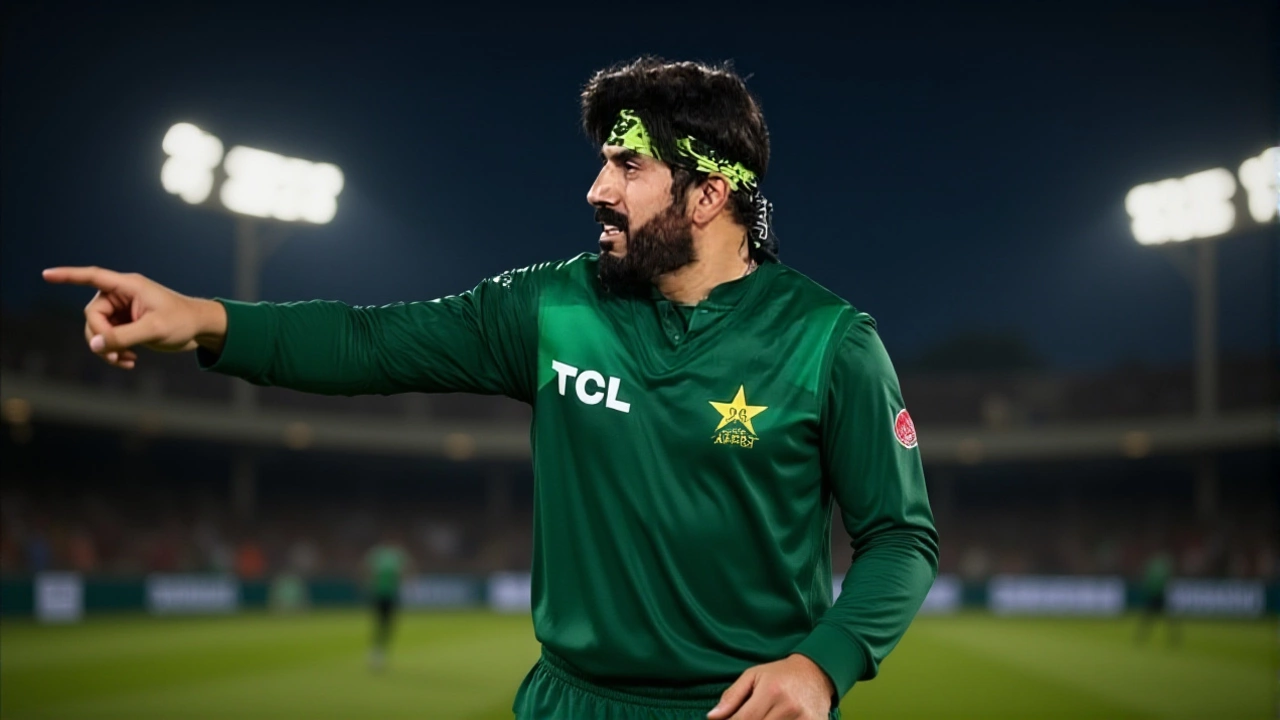On Sunday night, November 23, 2025, Usman Tariq, a 28-year-old right-arm off-spinner from Pakistan, delivered a performance that will echo through the country’s cricketing folklore — a maiden T20 International hat-trick against Zimbabwe Cricket in a tri-series match that ended in a commanding 69-run win. His figures: 4 wickets for 18 runs in just 3.4 overs. No one saw it coming. Not even him.
The Moment That Changed Everything
The hat-trick came in the 17th over, with Zimbabwe needing 52 off 24 balls to stay alive. Tariq dismissed Tinashe Panyangara with a sharp turn and bounce, then had Sikandar Raza lbw to the same delivery that seemed to kiss the pad before clipping the stumps. The third wicket? A full, slow off-break that held its line, kissed the edge, and flew to slip. The crowd at the venue — likely Gaddafi Stadium in Lahore or National Stadium in Karachi — fell silent for a heartbeat, then erupted. No fireworks. No choreography. Just pure, unscripted cricket magic.
What made it more extraordinary? Tariq hadn’t taken more than two wickets in any previous T20I. He’d been a fringe selection, a quiet presence in the squad, known more for his persistence than his flair. Yet here he was, stepping into the spotlight with a performance that placed him among Pakistan’s elite T20I hat-trick bowlers — a club that includes only a handful of names like Umar Gul and Shahid Afridi.
"It’s Not a Struggle. It’s a Process."
After the match, seated in a dimly lit press room, Tariq didn’t talk about glory. He talked about hunger.
"People often refer to domestic cricket as a 'struggle.' I see it differently," he said, voice calm but eyes sharp. "'Struggle' implies you don’t have food. The 'process' is where I learned how to bowl under pressure, how to stay patient when no one was watching. I was the sole breadwinner for my family for six years. That’s not hardship — that’s responsibility. And responsibility builds character."
He spoke of three mentors: My, As Qures, and Zib Khan — men who never gave him a contract, but gave him belief. "They told me I could win a game alone," Tariq said. "That’s what I carry. Our hard work is in our control. The outcome? That’s with Allah."
His journey began in the dusty nets of Faisalabad’s local clubs around 2018, where he bowled for hours after working part-time jobs. His family lived on his modest domestic match fees. No sponsors. No social media buzz. Just a boy with a ball and a dream no one else believed in.
Why This Matters Beyond the Scoreboard
Tariq’s rise isn’t just about a hat-trick. It’s a quiet rebellion against the system that favors flashy names over gritty persistence. For years, Pakistan’s T20 selection has leaned on IPL stars and T20 franchise players. But here’s a man who never played in the PSL, never featured in a global T20 league, yet outbowled them all.
His performance forced the Pakistan Cricket Board to confront a truth: talent isn’t always loud. Sometimes, it’s the guy who shows up at 5 a.m. to practice alone because the nets are free then.
And then there’s the India factor. When asked about his future ambitions, Tariq didn’t hesitate. "I want to do this against India," he said. "Not because it’s big, but because it’s hard. And if I can do it there, then I know I’ve truly arrived."
That’s the cultural weight here. Pakistan vs. India isn’t just a match. It’s a national reckoning. For Tariq, it’s the ultimate test of everything he’s endured.

What’s Next for the Quiet Assassin?
With this performance, Tariq has moved from fringe player to must-pick. The PCB has already hinted at his inclusion in the upcoming home series against Sri Lanka. But the real question: Can he replicate this under pressure? Can he handle the spotlight?
His answer, as always, is quiet. "I don’t chase results," he said. "I chase consistency. The rest takes care of itself."
And maybe that’s the lesson here. In a world obsessed with viral moments and instant fame, Usman Tariq reminds us that greatness isn’t always announced. Sometimes, it’s whispered — through a spinning ball, a silent prayer, and a man who refused to quit.

Frequently Asked Questions
How rare is a T20I hat-trick for Pakistan?
Only five Pakistani bowlers have ever taken a T20I hat-trick before Usman Tariq, with the last one being Umar Gul in 2013. Tariq’s feat is the first in over 12 years and only the 14th in the history of T20 Internationals by a Pakistani. The rarity underscores how difficult it is to take three wickets in three balls under international pressure, especially in a format where batsmen dominate early.
Who are My, As Qures, and Zib Khan?
The Dawn article doesn’t provide full names or official roles, but context suggests they are veteran domestic coaches or senior players from Tariq’s early career in Faisalabad or Sialkot. They’re not household names — likely retired players or local mentors who believed in him when no one else did. Their influence was psychological, not institutional, making their impact even more profound.
Did Tariq play in the Pakistan Super League?
No. Tariq has never been picked in any PSL franchise draft despite strong domestic performances. His omission highlights a systemic bias in Pakistan cricket toward players with overseas exposure or flashy T20 stats. His hat-trick now puts pressure on the PCB to reconsider how talent is identified — not just through leagues, but through consistent domestic output.
Why is the India match so important to Tariq?
Pakistan-India matches carry immense emotional weight — over 1 billion viewers globally, national pride, and a history of dramatic upsets. For a player like Tariq, who grew up watching those games on a broken TV, performing there isn’t just about cricket — it’s about proving that someone from his background can stand tall on the biggest stage. It’s the ultimate validation.
What’s the significance of Tariq calling his journey a 'process'?
By rejecting the word 'struggle,' Tariq reframes hardship as growth. In Pakistan’s cricket culture, 'struggle' often carries a stigma of failure. But 'process' implies intentionality, discipline, and belief. His language reflects a deeper shift — away from victimhood toward ownership. It’s a philosophy that could reshape how young cricketers view their own journeys.
Will Tariq get a central contract now?
It’s highly likely. Tariq was on a Grade D contract before this match. His performance has made him a strong candidate for a Grade C or even B contract, which would bring him a salary of around PKR 6–8 million annually. More importantly, it opens doors to international tours and future selection — something that was uncertain just a week ago.

